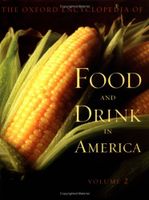Advertisement
Myths and Folklore
Appears in
Published 2004
In popular terminology, the myths and folklore of food frequently refer to superstitions, or non–scientifically based beliefs about food and eating habits. These beliefs are usually holdovers from the past, come from undocumented sources, and are often seen as preludes or additives to advice from trained professionals. Such beliefs are numerous throughout American culture, and their veracity and worth are debated in medical journals and domestic living magazines. More scholarly understandings of the concepts of “myth” and of “folklore” shed light on the significance of these beliefs and help to explain their tenacity. Myths are defined as beliefs concerning overarching truths by which we live. Beliefs normally are expressed through sayings, anecdotes, narratives, material objects, and rituals. Similarly, folklore refers to artistic communication in small groups, and to socially constructed connections of meaning between an individual and his or her place, past, and other people. Folklore also includes foodways, that is, the system of beliefs and practices surrounding all aspects of food production and consumption.


